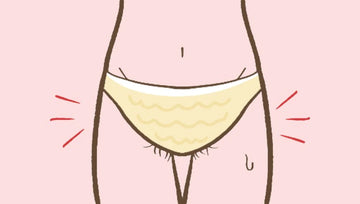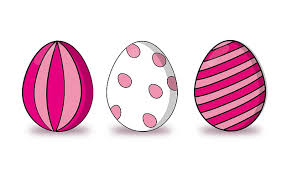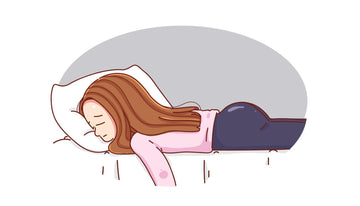
Heather Widdow, author of "Perfect Me: Beauty as an Ethical Ideal" and a professor of philosophy at the University of Birmingham in the United Kingdom, once said in an interview: "Body hair has been seriously stigmatized. so we feel it's 'shame' and that hasn't changed to this day. Hair removal was originally one of the few aesthetic preferences from cosmetic or hygienic, and now the result is that most women feel they have to remove their hair, almost like other women. It’s like having no choice. Although this perception is slowly changing, there is a lot of anxiety behind this phenomenon.”

Regarding the hair on the most private parts of the human body, it is always shy to discuss but cannot be ignored. Pubic hair is a natural signal of sexual maturity and reproductive capacity, as it begins to grow on a person's body when the reproductive system is sufficiently mature. Women have been expected to conform to society's beauty standards for centuries, and one of the most controversial topics in recent years has been whether women should shave their pubic hair. Whenever this topic is discussed, I always wonder "Since when did women start removing their pubic hair?"
A Brief History of Pubic Hair Trimming
Before the 20th century, "hairlessness" was simply seen as a way to keep the body clean
In ancient civilizations, men and women plucked their pubic hair mostly out of hygienic considerations, so that parasites such as lice or mites would not breed, as evidenced by nude portraits on ancient Greek vases and ancient Egyptian portraits. At the same time, the bathing culture of ancient Rome made the habit of hair removal popular, and gradually developed into a symbol of identity and status. Since ancient Rome conquered most of Europe, North Africa, and Central Asia, these ruled areas also followed Rome's bathing culture. In the Middle Ages, there are also historical records showing that both men and women removed their pubic hair at that time, but it is impossible to check whether most people removed their pubic hair.
After the 20th century, however, hair removal fell out of fashion, and pubic hair removal was rare until the decades after World War II.
After the 21st century, hair removal has changed from a recommended option to a routine operation
After the 1990s, Brazilian hair removal appeared and became famous through media reports. The hit broadcast of Sex and the City in 2000 triggered extensive discussions in the media. Of course, hairless genitals began to be regarded as a normal state. Of course, the formation of this trend is inseparable from the popularity of pornography and pornographic products since the 1990s. This is caused by male aesthetic aversion to female pubic hair, and this can be seen in pornographic photos and images from the past few decades.

From a historical perspective, it is not difficult to see that the reasons for removing pubic hair have shifted from keeping the vulva clean and hygienic to catering to aesthetic trends. The subject of pubic hair removal has also ranged from something everyone has to do to the fact that most women remove their pubic hair but most men keep their vigorous pubic hair to reflect masculine attractiveness.
These days, women with body hair are seen as irresponsible. Hair removal has unknowingly become a symbol of class and a standard that defines the so-called "femininity" and "ideal body". But is this really the case?
Hair removal and non-hair removal for women have their own benefits
Why you should shave your pubic hair:
1. It increases your sensitivity: No hair means more friction, so you might feel more sensitive during sex, which has its benefits.
2. Oral sex will be easier: Studies have found that among men and women, those who shaved their pubic hair were more likely to perform oral sex than those who did not. Less smell, your lover won't pick for a long time to find the clitoris, and the hair won't get stuck between the teeth embarrassingly. If you have trouble relaxing or enjoying oral sex because of your pubic hair, it may be worth trying to remove your pubic hair to see if it helps ease the stress of receiving oral sex.
3. Mischievous self-expression: You can leave your bikini area in different looks according to your preferences, which can be a fun way to spice up the bedroom and surprise your partner.
4. Reduce stuffiness and keep cool: During women's menstruation, the pubic hair will be stained with a lot of wet and sticky secretions, which makes people feel uncomfortable, especially in summer, it will be more stuffy and unbearable. There may also be a risk of odor if the hair is not adequately cleaned. Shaving pubic hair can alleviate this.
5. No hair covering can make it more convenient to use sex toys. Without the cover of pubic hair, the skin in the private part can be exposed in a larger area, especially when using a vibrator, it can not only stimulate the clitoris but also stimulate the skin around the labia majora, which brings a different feeling. I recommend a very small and cute vibrator, the Sunset Mushroom Vibrator from Pinkpunch, the price is favorable and the quality is guaranteed.

Benefits of not shaving your pubic hair:
1. Private parts skin barrier: Because the skin of the genitals is very sensitive, the pubic hair provides a layer of protection, and the curved pubic hair can reduce the damage of impact and friction during sex.
2. Protection from germs: Another purpose of pubic hair is to protect your genitals from germs, just like the hair inside your nose or eyelashes, pubic hair traps dirt and potentially harmful bacteria, keeping them from entering your body.
3. Pheromones: Whole bushes may actually excite your partner more than you think. The sweat glands in the hairy skin secrete an odorless secretion that mixes with the bacteria on our skin to produce odors called pheromones. The pubic area has more sweat glands than any other area of the body, and the pubic hair emits scents that do something to your partner.
4. Pubic hair does not mean unhygienic: In the past, due to insufficient environmental and sanitary conditions, it was impossible to wash the hair and body frequently, so they chose to remove the pubic hair to keep the genitals dry and clean. But along with the substantial improvement in people's living standards, frequent cleaning is enough to keep the genitals dry and clean. Hair removal to appear "clean" is a one-sided hygiene practice and social norm, so pubic hair is actually perfectly hygienic, and as long as you maintain regular body hygiene habits, it's perfectly possible to maintain lush pubic hair. It also reduces bacteria infestation.
5. Avoid itchy and stinging skin by not removing pubic hair: One of the most notable disadvantages of pubic hair removal is itching and ingrown hairs, which are hard to avoid. Most hair removal methods often cause skin abrasion and wound infection. You will most likely need more time for maintenance, such as exfoliation and moisturizing, so you have to consider whether it is worth your time.
Choose the pruning method that is more suitable for you

There are many ways to remove pubic hair, and the best method varies from person to person.
1. The easiest and quickest way is to use a safe razor to shave off the pubic hair directly. It is recommended to shave against the direction of hair growth, so that the leftover hair will be smaller. The disadvantage is that it needs to be shaved every other day or two.
2. Using hair removal cream will weaken the hair growth tendency and it will come off more cleanly, when it grows back, it has no sharp edges that can grow into your skin and cause inflammation.
3. Laser hair removal will destroy the hair follicles, making it impossible to fully recover and grow, which can save you the trouble of long-term hair removal.
4. If you don’t want to spend too much time and money maintaining your hair, then it’s also a good idea to use scissors to trim the pubic hair to only about one or two centimeters, which can prevent skin itching and tingling, and also keep it clean Refreshing, it is an efficient compromise method, highly recommended!
Making both hair removal and body hair preservation an option
In the requirements of beauty, sexual objectification to please the "male gaze" is not really the key, and being ready to "be seen" at all times is a more common and hidden objectification.
With the public's change in the aesthetics of private parts, more and more media are telling women to lose their pubic hair to be beautiful and correct. Women are under greater pressure from public opinion, and hair removal has unknowingly become the standard for defining the so-called "femininity" and "ideal body". We constantly demand and criticize ourselves to be perfect. Even if we are naked, we still hope to be exquisite and ecstasy, with perfect details. In fact, making women think that they have to be hairless to be more beautiful is a perverse means of controlling women's bodies and selves through "shaming".
So please let's ignore those stares for now, please stand naked in front of the mirror today, look directly at yourself, look at your body hair, the pubic hair in your private parts, you ask yourself, do you think it's sexier when it's full of pubic hair or when it's smooth? Do you like yourself more with pubic hair or hairless? Have you concluded? Then please accept, appreciate, and recognize your aesthetics and choices, and choose whether to remove your pubic hair. The next time you undress in front of your partner again, just tell him, "Because I like it, it's my choice."



